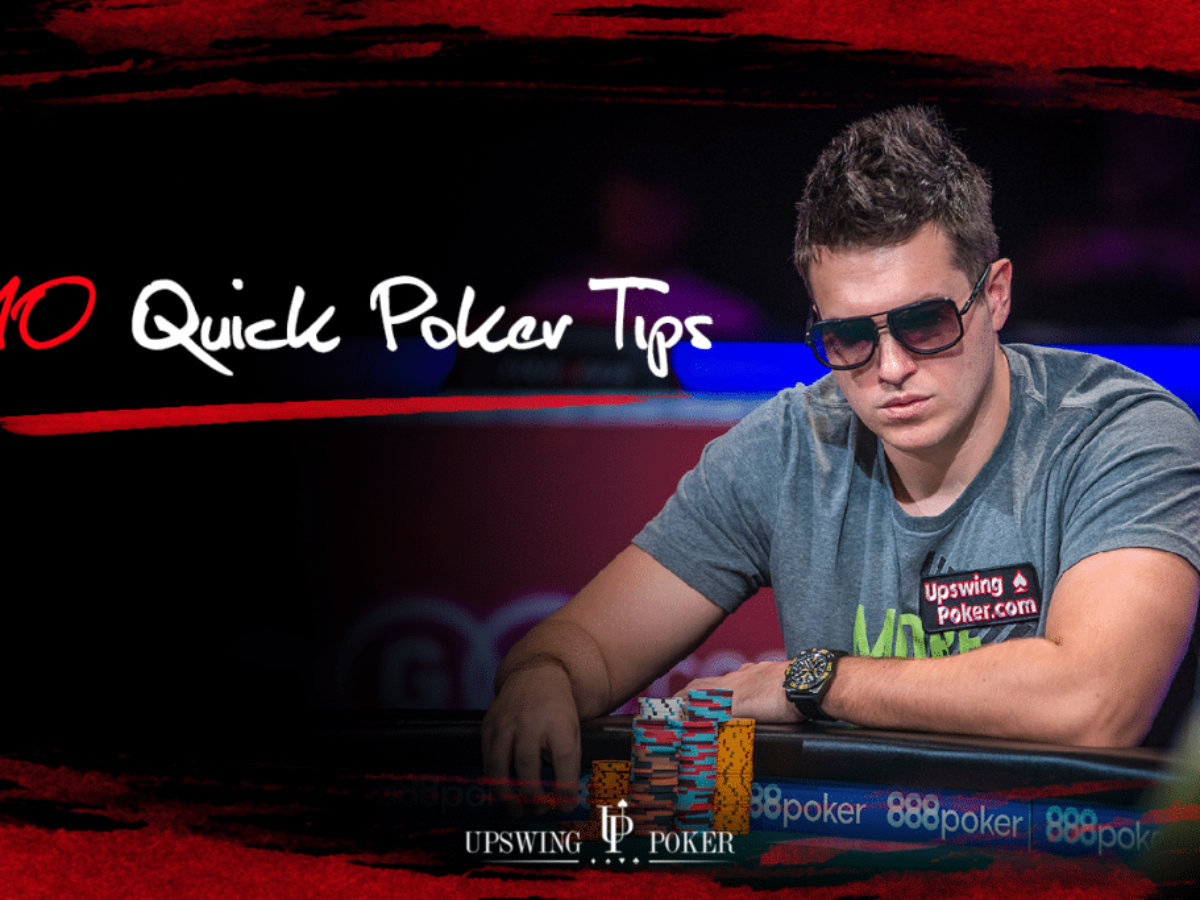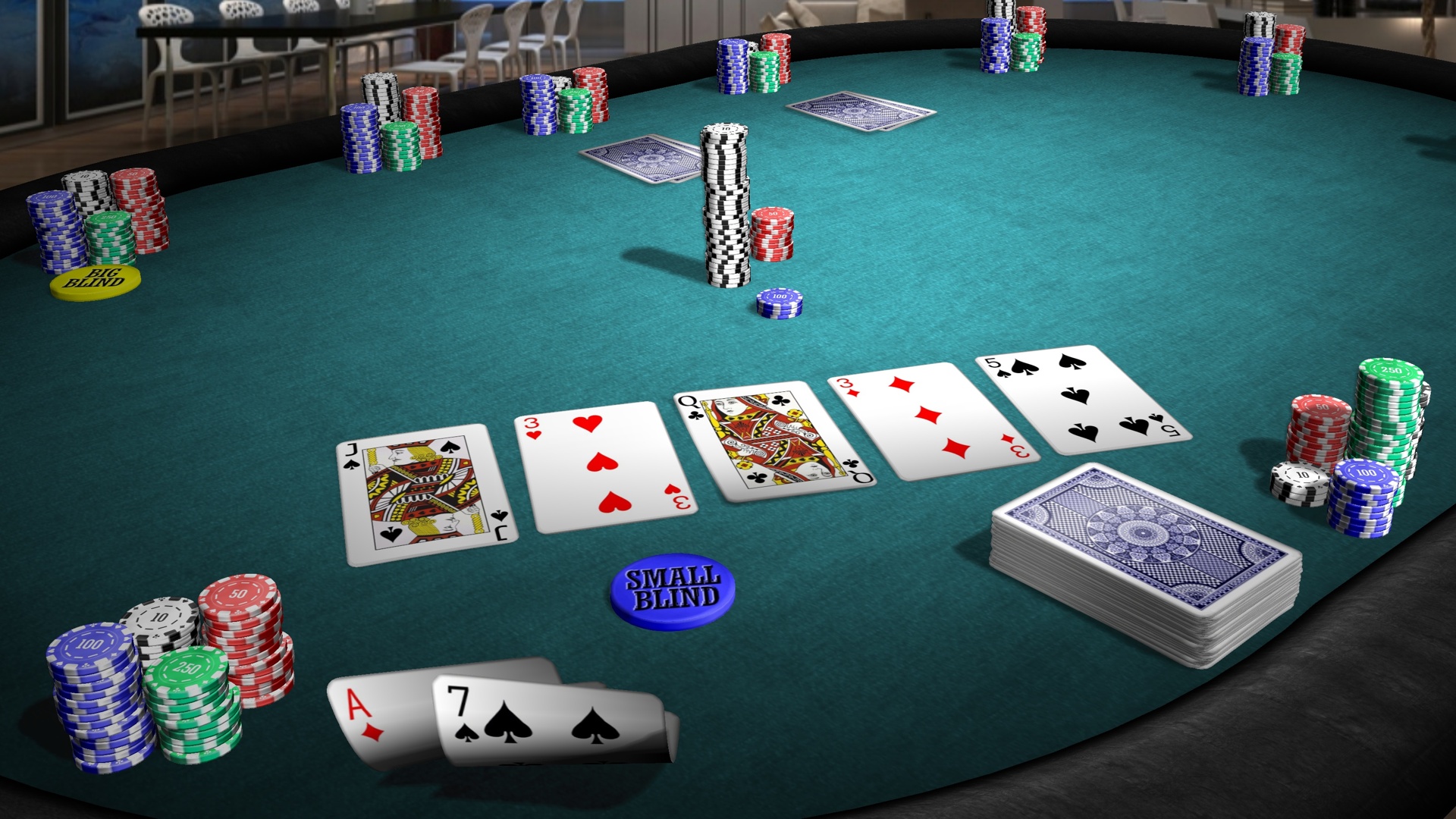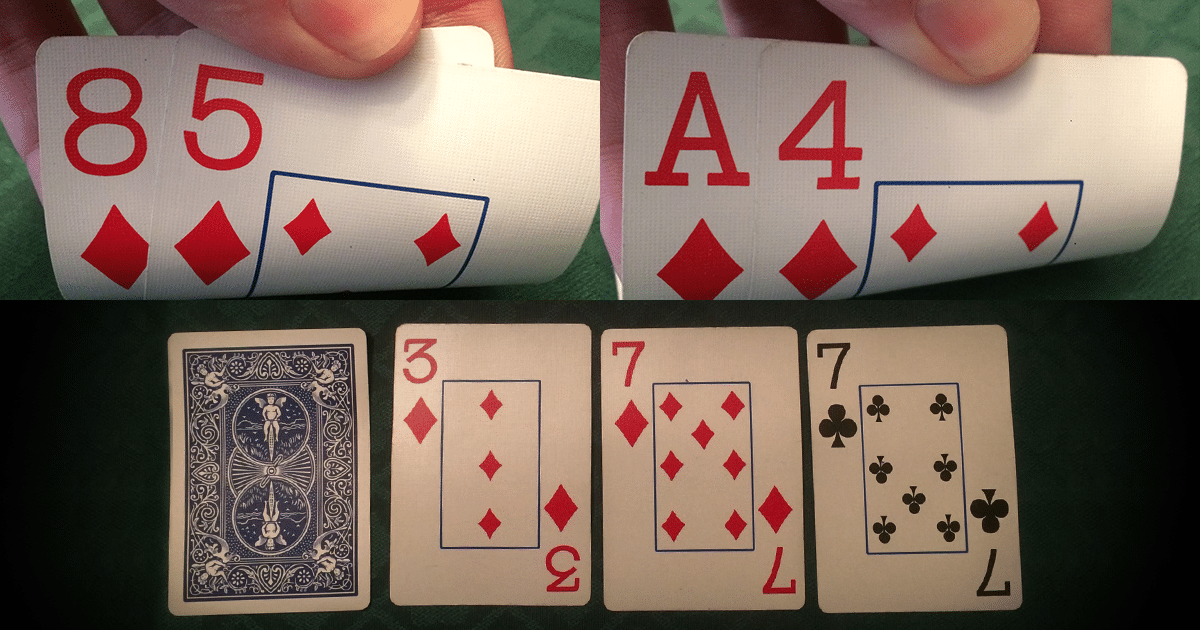Texas Holdem Poker Biggest Pot Win
In such a tournament, as the name implies, the last standing person would win all of the prize pool. Following is a chart of typical poker tournament payout structure. The prize section is in percentage format. It represents a certain percentage of the money in the pot (the money taken from all the tournament entrants). Biggest Pot Win Texas Holdem Poker £10, Max bonus bet £5 Bonus offer must be used within 30 days and bonus spins within 10 days, otherwise any unused shall be removed. Bonus spins are valid on the following games only: Asgardians Stone and Bloodsuckers 2, Gonzo’s Quest, Twin Spin Delux.
- Texas Holdem Poker Biggest Pot Winner
- Texas Holdem Poker Biggest Pot Winners
- Texas Holdem Poker Biggest Pot Winning
- Texas Holdem Poker Biggest Pot Wins
For the last eight years, the largest tournament in the world has been the World Series of Poker Main Event. With the exception of 1992, the US$10,000 buy-in tournament increased in prize pool year-over-year from its start in 1970 until 2007 (the latter a result of the Unlawful Internet Gambling Enforcement Act of 2006, which reduced the number of players winning their seats via online play).
The first tournament to reach a million dollar prize pool was the 1983 WSOP Main Event. The WSOP Main Event of 2004 had the first prize pool of above $10,000,000.
The largest non Hold'em Tournament has been the 2008 WSOP $50K HORSE with a prize pool of $7,104,000 and the first prize of $1,989,120 going to Scotty Nguyen.[1]
Below are the 30 largest poker tournaments with respect to the prize pool in United States dollars and not number of entrants. This list includes live and online poker.

Currently, 14 of the 15 largest prize pools in history have been WSOP Main Events. The second largest prize pool outside of the Main Event is the 2012 WSOP event known as The Big One for One Drop, held from July 1–3. It featured a buy-in of US$1 million, the largest in poker history. Of the buy-in, $111,111 was a charitable donation to the One Drop Foundation, and the WSOP took no rake. All 48 seats available for that event were filled, resulting in a prize pool of $42,666,672, with over 5 million dollars donated.[2] The second largest pool for any event outside of the WSOP was the 2012 Macau High Stakes Challenge, with a HK$2 million (US$260,000) buy-in plus a rebuy option. The event drew a field of 73, of which 21 made a rebuy, resulting in a prize pool of HK$182,360,000 (slightly over US$23.5 million).[3]
All of the 30 richest tournaments to date were played in No Limit Hold'em.
| Event | Prize Pool (US$) | Winner | 1st Prize | Ref. |
|---|---|---|---|---|
| 2006 WSOP Main Event | $82,512,162 | Jamie Gold | $12,000,000 | [4][5] |
| 2019 WSOP Main Event | $80,548,600 | Hossein Ensan | $10,000,000 | [6] |
| 2018 WSOP Main Event | $74,015,600 | John Cynn | $8,800,000 | [7] |
| 2010 WSOP Main Event | $68,799,059 | Jonathan Duhamel | $8,944,310 | [8] |
| 2017 WSOP Main Event | $67,877,400 | Scott Blumstein | $8,150,000 | [9] |
| 2019 Triton Super High Roller Series - Triton Million | $65,660,000 (£54,000,000) | Aaron Zang | $16,775,820* (£13,779,491) | [10] |
| 2019 Triton Super High Roller Series - Triton Million | $65,660,000 (£54,000,000) | Bryn Kenney* | $20,563,324* (£16,775,820) (2nd place) | [10] |
| 2011 WSOP Main Event | $64,531,000 | Pius Heinz | $8,711,956 | [11] |
| 2008 WSOP Main Event | $64,333,600 | Peter Eastgate | $9,152,416 | [12] |
| 2016 WSOP Main Event | $63,327,800 | Qui Nguyen | $8,005,310 | [13] |
| 2014 WSOP Main Event | $62,820,200 | Martin Jacobson | $10,000,000 | [14] |
| 2012 WSOP Main Event | $62,021,200 | Greg Merson | $8,527,982 | [15] |
| 2009 WSOP Main Event | $61,043,600 | Joe Cada | $8,547,042 | [16] |
| 2015 WSOP Main Event | $60,348,000 | Joe McKeehen | $7,680,021 | [17] |
| 2007 WSOP Main Event | $59,784,954 | Jerry Yang | $8,250,000 | [18] |
| 2013 WSOP Main Event | $59,708,800 | Ryan Riess | $8,359,531 | [19] |
| 2005 WSOP Main Event | $52,818,610 | Joe Hachem | $7,500,000 | [20] |
| 2012 WSOP Event 55 – The Big One for One Drop | $42,666,672 | Antonio Esfandiari | $18,346,673 | [21] |
| 2014 WSOP Event 57 – The Big One for One Drop | $37,333,338 | Dan Colman | $15,306,668 | [22] |
| 2016 Monte-Carlo One Drop Extravaganza | $27,437,564 | Elton Tsang | $12,248,912 | [23] |
| 2019 PokerStars NL Hold'em Players Championship | $26,455,500 | Ramon Colillas | $5,100,000 | [24] |
| 2018 WSOP Event 78 – The Big One for One Drop | $24,840,000 | Justin Bonomo | $10,000,000 | [25] |
| 2004 WSOP Main Event | $24,224,400 | Greg Raymer | $5,000,000 | [26] |
| 2012 Macau High Stakes Challenge Super High Roller | $23,511,128 | Stanley Choi | $6,465,560 | [27] |
| Super High Roller Bowl 2015 | $21,500,000 | Brian Rast | $7,525,000 | [28] |
| 2016 WSOP Event 67 – High Roller for One Drop | $19,316,565 | Fedor Holz | $4,981,775 | [29] |
| 2013 WSOP Event 47 – One Drop High Roller | $17,891,148 | Anthony Gregg | $4,830,619 | [30] |
| Super High Roller Bowl 2017 | $16,800,000 | Christoph Vogelsang | $6,000,000 | [31] |
| 2007 WPT Championship | $15,495,750 | Carlos Mortensen | $3,970,415 | [32] |
| 2013 GuangDong Ltd Asia Millions Main Event | $15,376,897 | Niklas Heinecker | $4,456,885 | [33] |
| 2011 Pokerstars Caribbean Adventure | $15,132,000 | Galen Hall | $2,300,000 | [34] |
| * | Due to a prize splitting deal Aaron Zang received £13,779,491 ($16,775,820) for 1st, original payout for 1st was £19,000,000 ($23,100,000). Bryn Kenney received a larger cash prize of £16,775,820 ($20,563,324) for 2nd place. |
Notes[edit]
- ^Hendon Mob
- ^Dalla, Nolan (June 30, 2012). 'The Biggest One—World's Most Spectacular Poker Extravaganza Starts Sunday'. World Series of Poker. Retrieved July 3, 2012.
- ^Peters, Donnie (August 31, 2012). 'Stanley Choi Wins Macau High Stakes Challenge for US$6,465,746'. PokerNews.com. Retrieved October 21, 2012.
- ^'2006 WSOP Main Event payouts'. WSOP. Retrieved 4 September 2017.
- ^Hendon Mob
- ^https://pokerdb.thehendonmob.com/event.php?a=r&n=541550
- ^[1]
- ^wsop.com
- ^http://www.wsop.com/tournaments/payouts.asp?grid=1352&tid=15673
- ^ abhttps://triton-series.com/triton-super-high-roller-series-london-2019/
- ^'PIUS HEINZ WINS 2011 WSOP MAIN EVENT CHAMPIONSHIP'. WSOP. 8 November 2011. Retrieved 9 November 2011.
- ^Hendon Mob
- ^'Level 4 concludes: officially the largest main event in the last five years'. WSOP. Retrieved 4 September 2017.
- ^Poker News Daily
- ^pokernews.com
- ^'2009 WSOP main event prize pool'. WSOP. Retrieved 4 September 2017.
- ^'Event #68: No-Limit Hold'em MAIN EVENT'. 2015 World Series op Poker Chip Counts. World Series of Poker. Retrieved July 15, 2015.
- ^Hendon Mob
- ^'2013 44th Annual World Series of Poker, Event #62: No-Limit Hold'em Main Event'. WSOP.com. Retrieved July 20, 2013. Click on the 'Prizepool' tab for the first prize.
- ^Hendon Mob
- ^Dalla, Nolan (July 3, 2012). 'Antonio Esfandiari Pulls Off Amazing Trick by Winning One Drop'. WSOP.com. Retrieved July 4, 2012.
- ^Hendon Mob
- ^[2]
- ^[3]
- ^[4]
- ^Hendon Mob
- ^Hendon Mob
- ^Hendon Mob
- ^Hendon Mob
- ^Hendon Mob
- ^[5]
- ^Hendon Mob
- ^Hendon Mob
- ^pokerstarsblog.com
Building a big pot may be simple in theory, but in reality there's a lot more to it. One of the first concepts that you learn when you start playing poker is there are big-pot hands and small-pot hands.
What dictates whether a hand's a big- or small-pot one depends on the circumstances.
How to Build Big Pots in Poker

Generally, small-pot hands are hands like one pair. Big-pot hands are flushes, straights, sets, full houses - hands you're willing to risk your whole stack with in hopes of winning your opponent's.
The reason building large pots is so much more difficult than it looks is because your opponent is trying to protect his stack. He, just like you, is trying his best to only put his money in when he thinks he has the best of it. He isn't just going to give up his stack without a fight.
Poker isn't like that (any more). You have to trick your opponent into thinking that his hand is better than yours - which is not always an easy task.
When you make that big hand, your ultimate goal is to get it all-in because you can't win your opponent's stack without putting your stack on the line.
The problem is, you can't just bet your stack right away. No opponent will ever call you if you elect to bet $200 into $6.
The pot starts out small, and you need to gradually build it so that by the time the river is dealt it's large enough for you to bet your entire stack.
Bet, Bet, Bet
The most basic method of building a pot is to just bet, bet, bet. Bet all three streets, the flop, the turn and the river.
In No-Limit poker, bets are always made in relation to the pot size. That means that on each street the pot grows exponentially. While the pot may be small on the flop, by the river it could be massive.
Let's look at an example.
$1/$2 No-Limit, effective stacks $200. You raise to $9 on the button with A♥K♠ and the big blind calls. The flop comes down Q♠J♣10♥.
The big blind checks and you bet $15 into $19. He calls once again. The turn comes 2♥ and the big blind checks again. You now bet $45 into $49 and he calls again.
The river comes down 6♣ and your opponent checks.
The river now contains $139 and you have $131 in your stack. You can now get all-in on the river without ever having to make an overbet.
The bet, bet, bet method works especially well against weaker, calling-station type players.
It can also be effective if your image is very bad - i.e. you've been caught bluffing recently or you have recently lost a few big pots and your opponents have reason to believe that you're tilting.
The Check-Raise
Another way to build a pot fast is to use the check-raise. As you probably know, the check-raise is when you check the action over to your opponent in hopes that he will bet and then you come over the top with a raise when he does.
The check-raise is effective at building pots because it allows you to get two rounds of betting from a single round - your opponent's bet and then your raise. Thus it allows you to build big pots faster.
The check-raise is not without its own faults. Check-raises scream strength and will often blow your opponent completely out of the water.
Furthermore, when you check, your opponent may elect to just check through, eliminating an entire round of betting.
Both forcing your opponent to fold and eliminating a street of betting are counterproductive to building large pots. You need three streets to build a pot big enough to get a 100BB stack all-in.
If you eliminate one of them, you're seldom going to get all-in without having to make an overbet - which is the major reason why slow-playing is not an effective way to build a pot.

You're best limiting yourself to check-raising only when you know your opponent will bet. That way you minimize the risk of losing a round of betting those times your opponent checks through.
If you find your opponents are folding too often to your check-raises, you have to balance your ranges better. Start occasionally check-raising with top-pair-type hands or your strong draws.
Texas Holdem Poker Biggest Pot Winner
If you only check-raise your monsters, your opponent will quickly catch on and just fold everything that you beat.

The Overbet
Another way to build a big pot is to overbet the pot. The overbet can be extremely effective against certain types of opponents.
Many players still believe to this day that any time a player overbets the pot they are bluffing. You can use this to your advantage and punish this type of player with large overbets.
The reason overbets are so effective is for the same reason they say 'Fast play is the new slow play.' Players think, 'If you have such a great hand, then why are you betting so much? If you had a real hand you would bet smaller and hope that I call.'
Tom 'durrrr' Dwan is a player who makes well-timed overbets regularly. He's such a dangerous player because he balances his ranges so well. His opponents are always left guessing as to what his overbets mean. They can signify a monster or complete air.
If you leave your opponent guessing, they are going to end up guessing wrong more often than they guess right. So start adding the overbet value bet to your arsenal.

Related Reading:
Making Your Hand Is Only Half the Battle
Texas Holdem Poker Biggest Pot Winners
Trying to decide how best to build a big pot is a good problem to have because it means you have a hand you're willing to go to the felt with.
Texas Holdem Poker Biggest Pot Winning
Ultimately, it will be up to you to decide which line is the best for the situation. The right decision, like everything in poker, depends on many factors ... your image, your opponent's range, the table flow, etc.
There is no cookie-cutter way to play any hand, and one line might be best against one player but could be completely terrible against a different player.
It's up to you to pay attention to your opponents and use whatever information you have to your advantage to find the best possible line with your big hands.
Texas Holdem Poker Biggest Pot Wins
Related strategy articles: